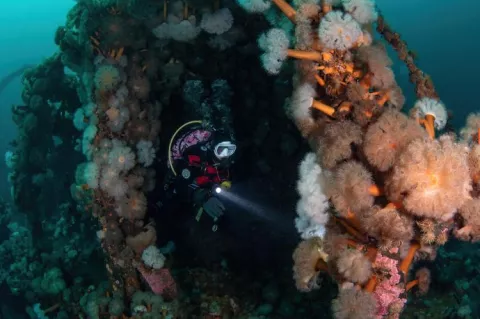Wreck of Sir Ernest Shackleton’s last ship, found in Labrador Sea
In a historic maritime discovery, the wreck of the Quest, the ship used by famed explorer Sir Ernest Shackleton during his last expedition, has been found off the coast of Newfoundland. This discovery, confirmed by the Royal Canadian Geographical Society (RCGS), provides a significant piece of the puzzle in understanding Shackleton’s enduring legacy in polar exploration.













